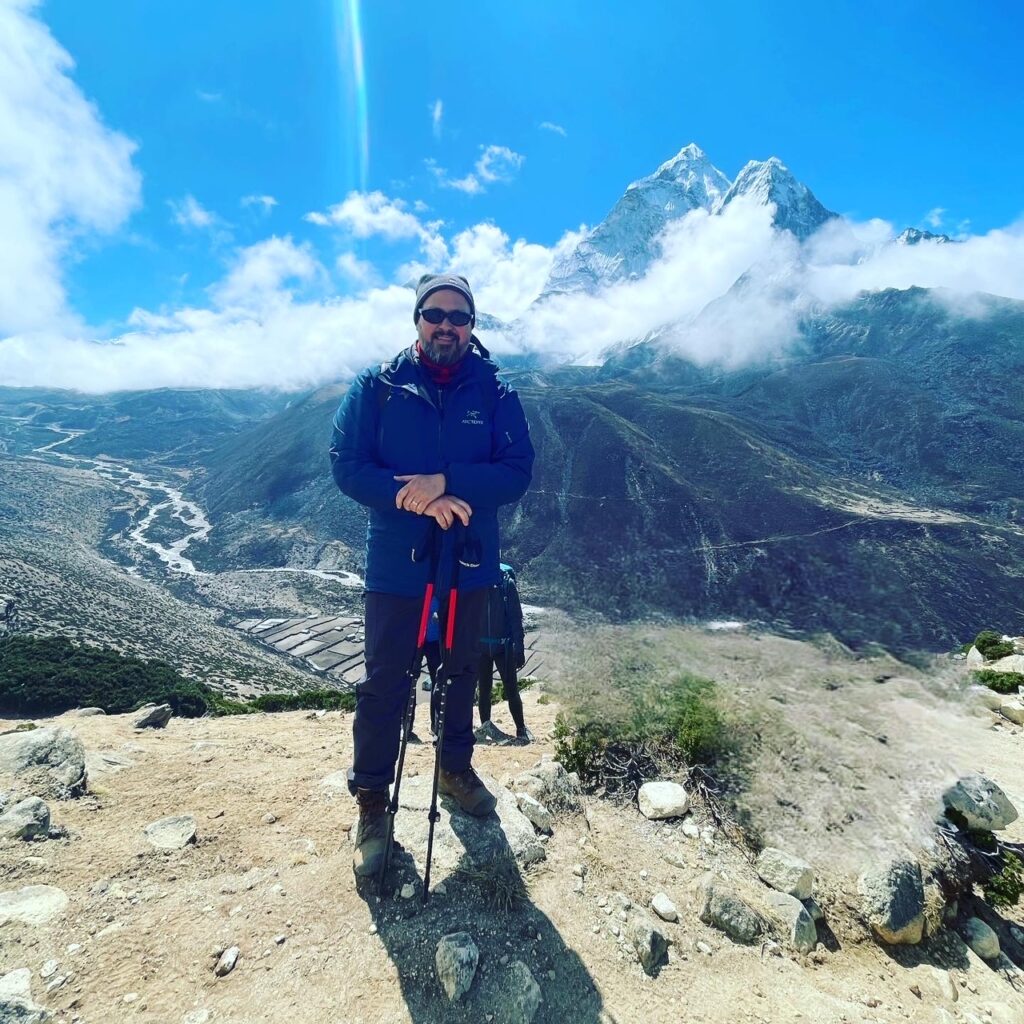
Features
Q&A
Q&A: Tom Comeau, Toronto Police Service
March 6, 2023 By Brittani Schroeder
 Photo credit: Tom Comeau
Photo credit: Tom Comeau Recently, editor Brittani Schroeder spoke with Detective Tom Comeau of the Toronto Police Service, about how he plans to summit two mountains in Nepal in support of first responder mental health.
Q: What is your background in policing?
I joined the Toronto Police Service (TPS) in 2005. Prior to becoming a police officer, I was a litigation lawyer in downtown Toronto for two years. I had been interested in policing and found the practice of law was not for me, so I applied to the TPS after completing all the pre-requisite testing.
Most of my career has been at 51 Division in the downtown core. I was promoted in 2016 and spent two years in a northwest division as a road sergeant before returning to 51 Division to join the investigative office. I’ve been working as a detective since 2018.
Q: Can you tell me about your mental health journey?
I truly believe that if you spend enough time in this business, you will develop some post-traumatic stress. It’s inevitable. No one calls the police because something nice has happened in their lives; they call us when something terrible has happened. When we respond and deal with the issue(s), we carry the residual stress and their pain with us long after we have finished the call.
Over time it builds up, and for some it can become overwhelming. The key—or at least something that has worked for me—is finding a healthy way to release the stress that comes with our work. My wife and I love to travel, and we love being able to introduce different parts of the world to our children. Further to that, for me, I found that being in the mountains is very soothing for the soul. There’s a suffering that comes with being at a high altitude and exerting yourself physically and mentally. I find that it melts away any stress and the main focus becomes completing the goal at hand.
Q: When did you become a climber? What started you on this passion?
I’ve always enjoyed travelling, but my first taste of altitude came in 2015 when my wife and I travelled to Peru to hike the Inca Trail to Machu Picchu. My wife became very ill because she couldn’t acclimatize to the altitude, but she fought hard and was able to complete the hike despite developing mild symptoms of altitude sickness. On that hike, we got as high as 4,200M, and I knew that I wanted to go higher.
Fast forward to 2020 when I was talking with a colleague at work about wanting to trek to the Everest Base Camp. As it turned out, he was very interested in doing the EBC trek, so in April 2022 we travelled to Nepal and completed the two-week trek to an altitude of just over 5,300M at base camp.
The altitude was difficult, and there isn’t a flat surface to be found once you arrive in Lukla to begin the trek, but I loved it. I felt refreshed and my mind was clear of any stresses I felt before leaving. When we returned to Canada, I began toying with the idea of summiting some of the mountains I had seen along the trek. I had a few conversations with expedition companies and a plan was developed for me to double summit Mount Lobuche (6,119M) and Ama Dablam (6,812M).
From what I can tell, I am the first Canadian police officer to attempt this double summit. The five-week expedition will be difficult, not only because of the challenge of climbing two mountains to their summits, but because I’ll be away from my family for so long. But I’ve dedicated my climb to bringing attention to first responder mental health and to raise money for Toronto Beyond the Blue. I’m at 75 per cent of my $10,000 goal, which I hope to surpass by the time I leave for Nepal in mid-April.
Q: How important is it to you to raise awareness of first responder mental health?
It’s very important for me to keep the conversation going with regards to first responder mental health. For so many years it wasn’t a topic of conversation, but now with the help of certain organizations, first responders—and in particular police officers—have an outlet to help them address their mental health.
Our job as frontline responders is a difficult one, both physically and psychologically, so keeping the importance of good mental health fresh on everyone’s minds is key to helping to keep all of us effective in our careers.
Q: How do you think it will feel when you reach the summits of the mountains? How will you feel as, potentially, the first Canadian law enforcement member to do this?
I get goosebumps just thinking about it – it will be an incredible achievement and one I look forward to sharing with family and friends. Thanks to social media, I’ll be able to upload images soon after my return to base camp. I’ll be incredibly proud to represent Canadian law enforcement officers.
Q: Do you have any advice or words to share with other first responders who may be going through their own mental health journey?
I would suggest finding something healthy that can help you focus any negative energy. For years, we’ve heard about the importance of exercise and it’s true. Being active and setting goals can help you focus on positive outcomes rather than some of the negatives that we are forced to deal with in our career in law enforcement.
For many first responders, mental health issues can feel like their own mountain that they have to summit. I am going to summit these two mountains to help show them that they can get through any challenges they face with focus and a determination to reach whatever goal they set for themselves.
Print this page